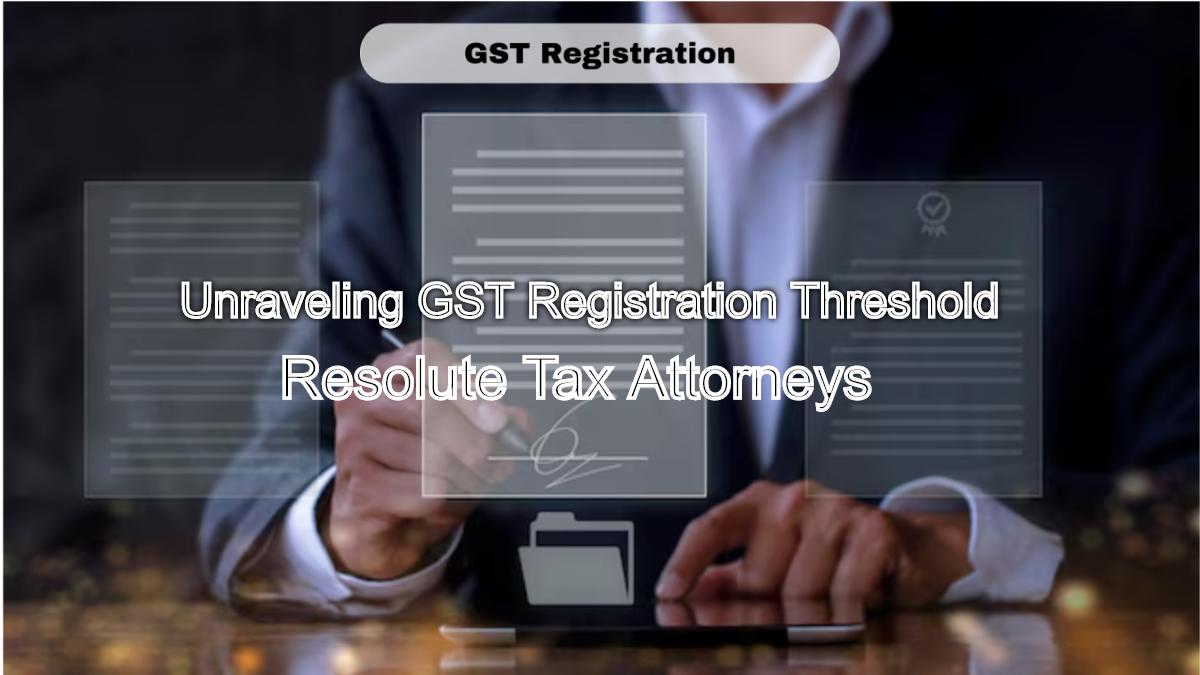Unraveling GST Registration Threshold: A Guide for Businesses in India
Unraveling GST Registration Threshold: What Businesses Need to Know
Navigating the complexities of the Goods and Services Tax (GST) can be a daunting task for businesses, particularly when it comes to understanding the registration threshold. This article aims to demystify the GST registration threshold, providing businesses with a clear understanding of when and why registration is required.
Understanding Threshold Limits
The GST registration threshold refers to the minimum annual turnover a business must achieve before it is mandated to register under the GST regime. This threshold varies depending on the type of business and its location.
For most states in India, the current threshold limits are:
- Rs. 40 lakhs for the supply of goods.
- Rs. 20 lakhs for the supply of services.
However, it is crucial to note that special category states like Jammu & Kashmir, Uttarakhand, Himachal Pradesh, and the North-Eastern states have a lower threshold of Rs. 20 lakhs for both goods and services.

Businesses exceeding these thresholds must register for GST within 30 days of the close of the financial year in which their turnover crossed the limit.
Beyond Threshold Limits: Additional Considerations
While the threshold limits provide a general guideline, certain situations necessitate GST registration regardless of turnover. These include:
- Inter-state supplies: Businesses making interstate supplies of goods or services, irrespective of their turnover, must register for GST.
- E-commerce businesses: Any business engaged in e-commerce activities, irrespective of its turnover, is required to register under GST.
- Businesses opting for the composition scheme: Businesses opting for the composition scheme, which offers a simplified tax compliance process, must also register for GST.
Benefits of GST Registration
While complying with GST regulations might seem onerous, registration offers several advantages for businesses:
- Claiming input tax credit (ITC): Registered businesses can claim ITC on the taxes paid on their purchases, effectively reducing their overall tax liability.
- Enhanced credibility: GST registration signifies a business's commitment to tax compliance, which can boost its credibility and attract more customers.
- Eligibility for government schemes: Certain government schemes and subsidies are only available to GST-registered businesses.
- Improved brand image: Being GST-compliant projects a professional and responsible image, enhancing brand reputation.
Navigating the GST Maze: Seeking Expert Guidance
Understanding and complying with GST regulations can be complex, especially for businesses unfamiliar with the intricacies of the system. In such cases, seeking the assistance of experienced GST lawyers or tax professionals is highly recommended.
Resolute Tax Attorneys: Your Trusted GST Partner
At Resolute Tax Attorneys, our team of expert GST lawyers possesses extensive knowledge and experience in navigating the complexities of GST registration and compliance. We offer comprehensive services to businesses, including:
- GST registration guidance and assistance.
- Compliance management and return filing.
- Input tax credit optimization.
- GST audits and appeals.
- Expert advice and representation on GST-related matters.
Read More
- Defending Black Money Charges | Expert Advocates
- GST litigation and dispute resolution services : Expert Tax Attorneys
- GST Litigation and Taxation in India: A Comprehensive Guide
- GST Dispute Resolution: How to Navigate the Legal System?
- Demystifying Input Tax Credit (ITC) Eligibility: Essential Guide for Businesses
- Visit the GST portal
We understand the challenges businesses face in complying with GST regulations. Our dedicated team is committed to providing tailored solutions and ensuring your smooth transition into the GST regime.